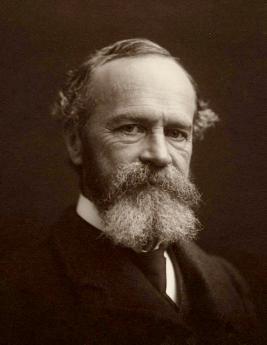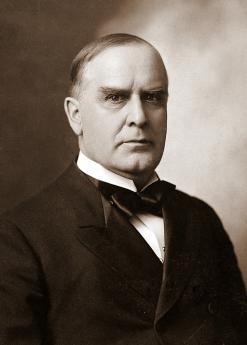Related Topics
Franklin Inn Club
Hidden in a back alley near the theaters, this little club is the center of the City's literary circle. It enjoys outstanding food in surroundings which suggest Samuel Johnson's club in London.
Dislocations: Financial and Fundamental
The crash of 2007 was more than a bank panic. Thirty years of excessive borrowing had reached a point where something was certain to topple it. Alan Greenspan deplored "irrational exuberance" in 1996, but only in 2007 did everybody try to get out the door at the same time. The crash announced the switch to deleveraging, it did not cause it.
Foreign Affairs
This topic is under construction. Feel free to watch it evolve.
Customs, Culture and Traditions (2)
.
Progressive Movement
The Progressive movement, around 1900, definitely included Teddy Roosevelt, but it is not so clear he started it. The James brothers sound like a better source.
William James and the Progressive Movement

|
| William James |
Howard Callaway, noted historian, recently held forth at a meeting of the Franklin Inn Club about the Progressive Movement of the early 20th Century. His interesting point was that perhaps William James really started it all. The James brothers, William and Henry, were very rich and spent nearly twenty years in Europe. Their ideas may not have originated in Europe, but they certainly had a European tinge to them. Perhaps it is fair to surmise that the Progressives grew out of reaction to the Gilded Age, around 1870, which Howard feels was the last great episode of globalization before the present one.
In spite of the very European origins of Queen Victoria and her family, the British aristocracy has always feared and distrusted Europe. When Britain discovered it couldn't conquer Europe (or America), it turned its attention to developing a great commercial empire by colonizing Africa and East Asia. That led to building a Navy and establishing naval refueling stations at strategic places around the globe. Meanwhile, the Spanish empire was deteriorating, and colonization took on the form of competition between England, France, and Germany for the remnants of the Spanish empire. For background music, the Dreyfus episode led to or was prompted to lead to, an anti-military attitude that had considerable world-wide effect, essentially none of the above. In time, the none of above military attitude fused with Progressivism of the environmental sort which viewed industrialization as the enemy.

|
| William McKinley |
In a sense, American attitudes were influenced by William McKinley, who managed to convince labor they would be better off by advancing the cause of their bosses. Part of the reaction to this was the Populism of William Jennings Bryan and Robert LaFollette. McKinley's assassination and the promotion of Teddy Roosevelt was an unexpected turning point in American politics. Meanwhile, Admiral Dewey's fleet was stationed in Hong Kong. This association between America and Great Britain, along with secret German attempts to intervene in unobtrusive ways during the Spanish-American War were important factors in the later alliance between Britain and America in World War I. The burgeoning alliance between labor and management which McKinley was well along toward making the dominant force in American politics, was thus precipitously switched toward Progressivism by McKinley's assassination, which revealed he had made the one major blunder of selecting Teddy Roosevelt as his vice president, who in turn made the same blunder in reverse by selecting William Howard Taft as his own successor. The splitting of the Republican party between Roosevelt and Taft made possible the election of Woodrow Wilson, the college professor.
It thus can be concluded that the repeated switching between Conservatism and Progressivism during the Presidencies of McKinley through Wilson was the main source of the present rearranged coalitions we call the Republican and Democratic parties. It only remained for Franklin Roosevelt to complete the process by fitting the South, Catholics, and Jews into the Democratic Alliance, and Richard Nixon to undo it partially with switching the South and the Catholics back into the Republican party. The demography of the parties has changed more than the ideology, which tends more toward a coalition of business and Southerners versus blue-stocking progressives linked with labor union populists. Underlying all of this is the general acknowledgment of the need for a two-party system. Instead of having five or six small parties, the ultimate choice is whether a dissatisfied sub party is disaffected enough to switch parties. The nation is geographically so large and the subgroups so scattered that almost everyone except recent immigrants instinctively respects the two-party imperative.
Originally published: Monday, November 04, 2013; most-recently modified: Wednesday, June 05, 2019